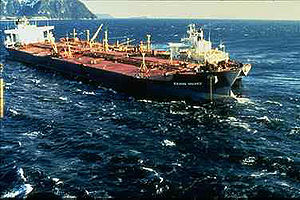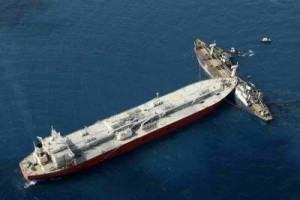Has the concept of fatigue simply become a buzzword for criminalized mariners when they are forced to defend themselves against punitive Coast Guard investigations? Or is the idea of fatigue legitimate? In this modern age and with all the studies that have been conducted on the subject is it still possible to overwork vessel personnel to the point they are unable to make sound decisions at critical junctures?
The question arises because a National Transportation Safety Board (NTSB) marine investigator shared recently that mariners increasingly reference fatigue as a causing factor during marine incident investigations. The inspector somewhat callously expressed to me that the concept of fatigue has become so engrained in maritime culture that mariners now automatically cite it whenever an incident occurs. This idea is troublesome on a number of levels.
First of all, NTSB investigators should be impartial. In order for an investigator to effectively gather evidence, deduce facts, and form conclusions, that investigator’s perceptions must be free from preconceptions. When an investigator assumes during questioning that the seafarer is fabricating, the investigation is inherently tainted. It is a bias that will no doubt factor into the final report whether the investigator realizes or not.
Second, the concept of fatigue has become somewhat of a cliché to these officials because it actually is a problem. Clichés become clichés for a reason after all. Of course the investigators are always going to hear fatigue is a contributing factor because fatigue is always a contributing factor.
Consider that the average commercial cargo vessel is operated leaner than ever with schedules more demanding than ever. On a typical thirty-five day trans-Atlantic roundtrip, a ship will visit 10 different ports. These visits include piloting in and out of harbors; docking and undocking; cargo operations; interacting with shore officials, vendors, and company officials; maintaining vessel paperwork; conducting safety and security checks and drills; conducting crew training; changing crew; performing vessel maintenance; loading supplies; discharging waste; fueling. All this is handled by a crew of 18 to 23. And this list is by no means exhaustive. Port stays are shorter than ever, which means a typical rest period for crew members no longer exists.
Comprehensive research conducted on fatigue in 2006 revealed the following:
• One in four seafarers said they had fallen asleep while on watch
• Almost 50% of seafarers taking part in the study reported working weeks of 85 hours or more
• Around half said their working hours had increased over the past 10 years, despite new regulations intended to combat fatigue
• Almost 50% of seafarers surveyed considered their working hours presented a danger to their personal safety
• Some 37% said their working hours sometimes posed a danger to the safe operations of their ship
Accounting for this one can only conclude that of course seafarers are fatigued! Rather than discounting mariner testimony out of hand, investigators would do well to look further  into the why of fatigue. Why are mariners consistently reporting being short on rest? Why is nothing done to improve the problem? Why are incidents involving simple human error still prevalent? Then apply common sense solutions, such as adding one junior officer to the crew complement, and this very real epidemic will diminish significantly. The long term savings from injury and accident prevention will more than offset any increased personnel expense.
into the why of fatigue. Why are mariners consistently reporting being short on rest? Why is nothing done to improve the problem? Why are incidents involving simple human error still prevalent? Then apply common sense solutions, such as adding one junior officer to the crew complement, and this very real epidemic will diminish significantly. The long term savings from injury and accident prevention will more than offset any increased personnel expense.
